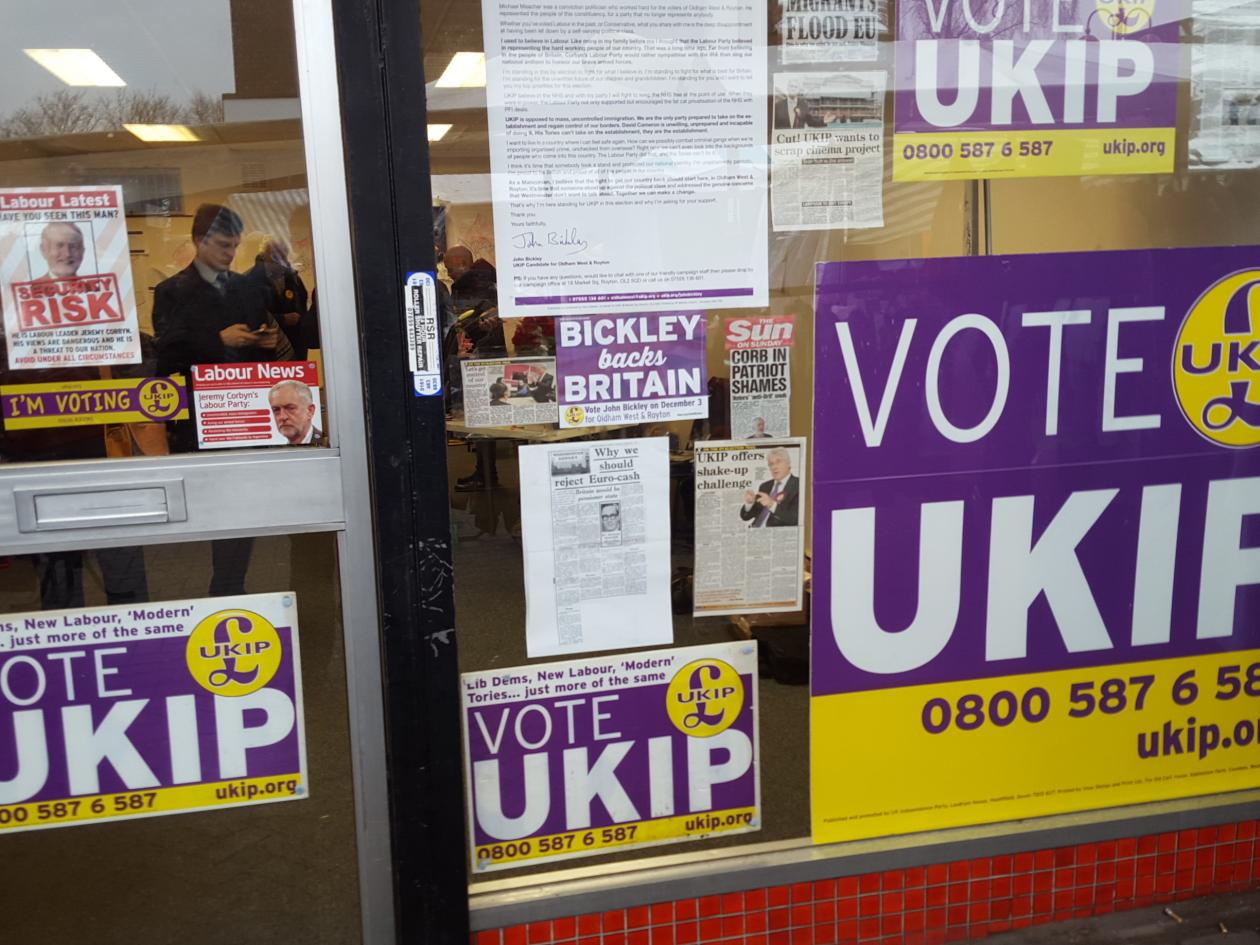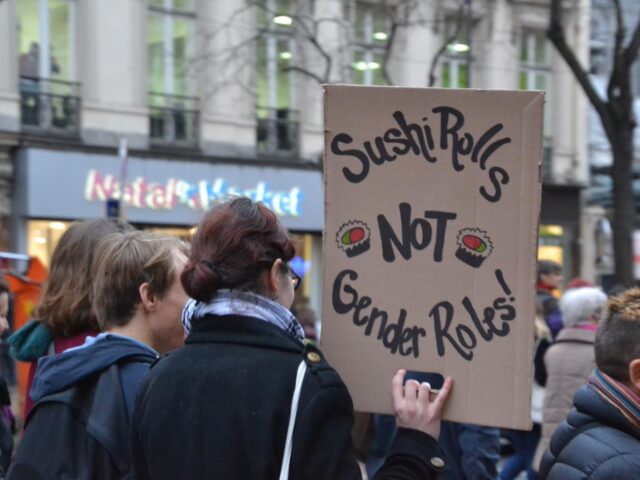Over the past few decades, the fault lines of democratic politics in Western countries have tilted from class to culture. In Britain, one of the most powerful manifestations of this shift was the rise of the UK Independence Party (UKIP) – the most successful new entrant in the rigid UK party system at least since the SDP in the 1980s. During the 2010s, UKIP wielded an outsized influence in setting Britain’s political agenda, as its themes, policies and language seeped through the mainstream – culminating most notably with the ‘Brexit’ referendum.
Who are the voters that powered UKIP’s success? Existing research has linked the party’s rise to ‘cultural’ issues such as migration, identity, and national sovereignty. We asked whether the party also has a distinctive occupational base, in the same way in which Labour and the Conservatives traditionally drew on support from distinct social classes. To address this question, we employed Max Weber’s distinction between class and status: social hierarchies that define, respectively, the labour market position of occupations and the degree of ‘prestige’ attributed to them.
We found that UKIP was not, as is sometimes argued, a ‘working class’ phenomenon: it drew considerable support from small entrepreneurs, the self-employed and some sectors of the managerial classes. Moreover, within classes – that is, for people with similar types of employment contract and workplace autonomy – support for UKIP is quite unevenly distributed across occupations. If class position tells us little about people’s likelihood to vote for UKIP, what the occupations of people who were drawn to UKIP do have in common is their similar status position: lower status consistently predicts the likelihood of supporting UKIP, regardless of class, income, education, region and other socio-demographics.
This contrasts starkly with the occupational predictors of vote for mainstream parties: when we look at the likelihood of supporting Labour and Conservative parties, it is class – and not status – that distinguishes their electorates. We also analysed the electorates of right-wing populist parties (RPPs) in nine other European countries, and found very similar patterns: it is status, and not class, that predicts support for RPPs, as well as negative attitudes to migration.
Measuring class and status
For the analysis of the occupational bases of party support in the UK, we used data from Wave 6 of Understanding Society, gathered in 2015 (when UKIP support hit its peak). We measured class using the National Statistics socio-economic classification (NS-SEC), which codes respondents into discrete labour market categories such as higher managerial, administrative and professional occupations, semi-routine and routine occupations.
To measure status, we used scores derived in the work of John Goldthorpe and Tak Wing Chan. Their method assumes that social interaction implies perceived status equality – so, if two occupations have similar patterns of friendship with other occupational groups, people in those two occupations are assigned similar status scores, as they can be expected to ‘mingle’ with a similar set of people. The result is a scale measuring the social proximity or distance between occupations, with professionals such as doctors and solicitors at one end and general labourers at the other. We used occupational codes in the special access version of Understanding Society to match those scores to respondents in our dataset.
The two different approaches to categorising occupations obviously have a degree of overlap – after all, economic capital comes with some degree of social prestige – but do not coincide entirely. For instance, some managerial occupations, such as shopkeepers or plant and depot managers, have lower status scores than subordinate occupations in childcare and social welfare.
Findings in the UK
Most importantly, our research suggests that such distinction has empirical relevance. When we examined the relationship between UKIP support and status, class and other socio-demographic factors, the effects of class were insignificant, while status scores were very robustly (and negatively) associated with likelihood of supporting UKIP. (That is, the lower a person’s status, the more likely they were to support them.)
Conversely, when we looked at support for Labour and Conservatives, the opposite pattern is true: the more autonomous one’s class position, the more likely people are to vote for the Conservatives and the less likely they are to vote Labour. Despite a long-term decline in class politics, then, class was still a factor in distinguishing between Conservative and Labour voters in 2015. The effect of status on mainstream party support was not significant.
Alongside status, education – and in particular, degree-level education – is one of the strongest (negative) predictors of UKIP vote. In fact, education and status seem to work in parallel, rather than cancelling each other out. This suggests that, to understand the occupational distribution of the values that underpin support for parties like UKIP, two distinct phenomena must be taken into account. First, the fact that someone went on to higher education tells us something about their values independently of how they were then ‘sorted’ into the labour market after graduation. And at the same time, ending up in higher or lower ‘status circles’ through occupational choice is also predictive of someone’s politics independently of the educational route that brought them there.
Looking across Europe
There is a body of research on the sociology of the radical right, and to put our findings in this context, we looked at nine other European countries (Austria, Denmark, Finland, France, Germany, the Netherlands, Norway, Sweden and Switzerland) with significant right-wing populist parties. Using European Social Survey data (2002-2018) we reproduced Goldthorpe and Chan’s methodology to derive status scales for each country on the basis of marriage – rather than friendship – patterns. For class, we used the European Socio-Economic Classification, a close relative of the NS-SEC class scheme used in Britain.
This analysis backed up our UK findings: status is negatively associated with RPP support in all nine countries, and robust to a broad set of controls in seven. The European data also allows us to probe further the role of people’s values in mediating between social structure and political choice. For instance, we show that economic left-right attitudes to government redistribution of income are structured by class and not status. By contrast, ‘cultural’ preferences such as respondents’ views on immigration are stratified – even more clearly than party support – by status and not class.
Better understanding
The emergence of cultural politics as a central axis of political competition in Britain and elsewhere calls for a more nuanced examination of its rooting in social structure. The language of class, and the tools developed to study class politics, may in fact prove misleading to understand radical right electorates, forcing economic explanations onto something that is not simply – perhaps not even primarily – rooted in economic insecurity.
By bringing the concept of ‘status’ to the fore, our research makes the case for a more multi-dimensional approach to the study of the links between occupations, political preferences and behaviour. The status hierarchy is tangled up with perceptions of social prestige, differential patterns of social interaction and the development of distinct cultural preferences across ‘status circles’. As such, it seems well-placed to describe why some voters, and not others, are drawn to political movements whose messaging focuses on perceived threats to established communities and resentment towards distant ‘high-status’ elites.
Authors

Leonardo Carella
Leonardo Carella is a PhD student in the Department of Politics and International Relations at Mansfield College, Oxford

Rob Ford
Rob Ford is a Professor of Political Science at the University of Manchester




